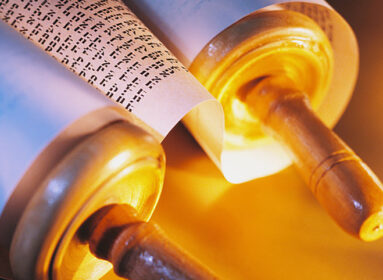
Metzora
It was my privilege and blessing to attend, the last week in March, the recent annual Rabbinical Assembly Convention. One highlight was an inspiring talk by Dr. Arnold Eisen, Chancellor of the Jewish Theological Seminary. Chancellor Eisen pointed out that one of the essential teachings of the Torah is that it recognizes that life is so often in the daily details/challenges/realities of life. Psychiatrists have said that without the problems people face in the areas of death and sex, they would have no business! And these, along with eating and questions of self-worth and purity are the essential content of the book of Leviticus. I remember, with a sad smile, that Rabbi Harold Kushner said once that he had deliberately entitled his seminal book “When Bad Things Happen to Good People”, not ‘If…’. No one has such a charmed and ideal life that they have not encountered/ have had to deal with/ have not struggled with/ have not been hit in the kishkes and heart with tsuris and challenges, and so we need the teachings of Vayikra and even the “yuggiest” part of Parshat Metzora to give us ways to deal with the questions and problems of intimate personal life that can afflict us. And the realization that it is the Kohen, the priest, that helps to deal with them, teaches us that the answer to the problem is ultimately a religious one.
Within each major denomination of American Judaism, there are publications bringing insights from the weekly Torah portion to teach congregants (and rabbis!) some of the never-ending insights that we can find in the weekly portion. In the Conservative movement, the United Synagogue of Conservative Judaism provides a weekly “Torah Sparks,” this year edited by Rabbi Joseph Prouser. I find sharing it with my congregation a basic part of our Shabbat morning worship. Indeed, even in portions where one might think there is a paucity of commentary, the adage from Pirkei Avot, “Turn it, turn it, for everything is in it” (5:23) applies. Even in Parshat Metzora, dealing with what is mistranslated as “leprosy,” there is much to learn.
As hard as it is to deal with this affliction on an individual, it is even harder to imagine how it could afflict a house! And yet this is what we read in Chapter 14: “When you enter the land of Canaan….and I inflict a plague upon a house… the owner of the house shall come and tell the priest…” and then the priest has a process of either purification or response to the plague.
Rabbi Prouser quotes a contemporary rabbi, Rabbi Lawrence Kushner, who says “It grows on the walls of our bedrooms, like mold, and in the inferior of our psyches, an alien growth. It’s immune to cleanser and medicines because it’s not evil, dirt, or illness. But it’s still there. Isn’t that what organized religion is supposed to do? With water and blood and birds, hyssop and cedar wood and sacrifice (or whatever)… to make our homes fit for habitation.”
The words of the Torah indeed speak to us today, if we only have the willingness to listen!!
Rabbi Gary Atkins is spiritual leader of Beth Hillel Synagogue in Bloomfield.








 Southern New England Jewish Ledger
Southern New England Jewish Ledger










